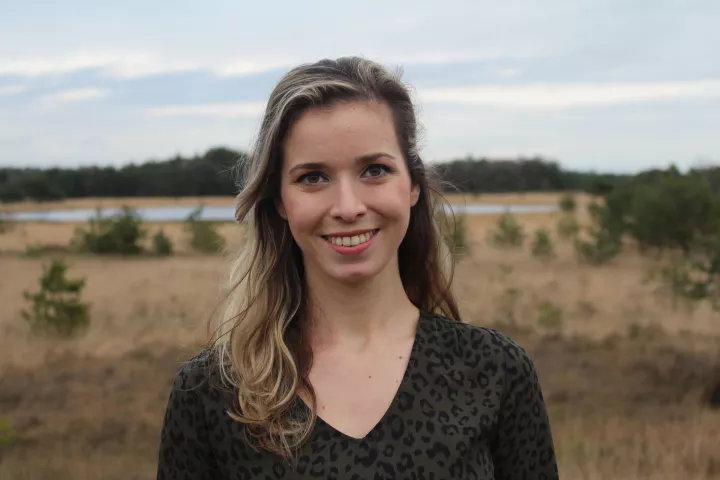Lizet de Greef has been working as a probation worker (supervisor) at Novadic Kentron for over three years, and has good experiences with referring to Perspectief Herstelbemiddeling. “As a probation service you give back to society in this way.”
I heard about Perspectief during a workshop that was given at a team meeting. A mediator came to tell us about what restorative mediation is. After that, I proposed it to several clients. For me, it depends which stadium the client is in and what has priority. Should we work on housing first, are they still using drugs? Then that has priority. If the client’s situation is a bit more stable, we can go more in-depth and we can talk about their possible victims. For a while now, I’ve also been working with forensic psychiatric patients, who are often guilty of more severe crimes. After some time of working with them, I make the suggestion, and they can think about it. I make sure not to put pressure on it.”
Since 2018 Lizet was supervising a woman. She was addicted to cocaine and was under probation supervision because of scamming and fraud. During the probation supervision, she successfully tackled several issues. However, something was still gnawing at her. One of her victims was her brother. She had made use of his personal information. Because of this, they were no longer in contact. She did still have contact with her mother, and dreamed to once again be able to get together with the whole family again at her mother’s house.
Feelings of guilt
Lizet: “I gave her a folder about restorative mediation. She took that with both hands. She had massive feelings of guilt towards her brother. She wanted to start this process with her brother to be able to be in the same room with him again. To fix their relationship.
Together, we filled in the online application form. She felt more comfortable to register me as the contact person. Only a few days later, a mediator from Perspectief called me. We discussed the case in detail. There are several ways to do mediation. You can have a face-to-face meeting, but it’s also possible to exchange letters. What I found very nice is that the mediator then took the initiative to contact the client, and after that the victim, her brother. As a contact person I was kept well-informed, not about the details, but about the bigger picture. It was all picked up quickly and carefully.”
“She wanted to show that she had improved her life and was no longer under the spell of cocaine.”
Fortunately, the brother was open to a meeting. The meeting was prepared by the mediator and the client had a few things she intended to tell her brother. The meeting took place in a neutral location.
Lizet: “My client told him what she’d been working on in, and apologized. She wanted to show that she had improved her life and was no longer under the spell of cocaine. Her brother listened to her and told her about the effects her crimes had on him. They agreed to very slowly start the contact back up again. She now feels much less nervous when she visits her mother, and she’s no longer afraid to unexpectedly run into her brother again. The conversation reduced those tensions. The contact is not intensive now, it takes time, of course. But my client is no longer afraid to contact her brother to discuss certain things. She hopes that one day they will be able to visit each other again. It’s too early for that now, but the first step has been taken!”
What did you hope your client would gain?
“I hoped that it would be a first step towards contact with her brother. She gained insights from it about the effects of the crime. This is important for the probation service, because it makes it less likely she’ll do it again. You also give back to society this way. As a probation service, you’re focused on the client, but this way we can also help victims.
Besides, this way she can hopefully focus on the future. This way she can close off her past of crime and addiction, which was something that always made her very emotional and sad. That really bothered her a lot.”
“For me, this positive experience gave me a boost to refer to restorative mediation more often. It gave me the energy to keep trying to motive clients to start such a process.
For example, I discussed it with a forensic psychiatric patient. He’s returning to a clinic in his own area and wants to start this process. I make sure that I inform the staff over there that we talked about this, and that the client will possibly be registered for restorative mediation from there.”
